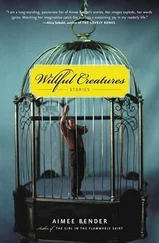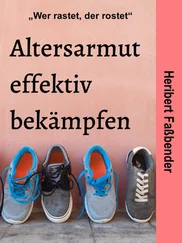“Your office,” he said.
She seemed surprised that her request had been obeyed so swiftly; then she walked in, hands clasped behind her back like Napoleon inspecting the troops. She went to the windows and looked outside. The morning sun fell in wide bright strips across the lawn, so that the pink- and cream-colored roses gleamed like satin.
“Do you require use of a phone?”
“No,” she said.
“A fax machine?”
“No, thank you.”
She rose up on half-toe and then down again — later, he realized this was the gesture she used when she had more on her mind that she wanted to talk about, trying to make herself physically taller to give herself stature to ask for what she wanted.
“Your office,” he said. “Now. My headset.”
“Your what?”
“My headset. I need it.” He tried to smile, attempting to appear more relaxed than he felt. “Now.”
“I don’t know what you’re talking about,” she said, curtly, so like her mother in fact it confirmed she knew where it was. She sat in the dark vinyl chair and leaned back in it. “Now. Tell me your opinion. I want to describe the sky over a new planet that has been created by the explosion of a supernova. Should it be pink or yellow or blue or a combination?”
“I don’t know,” he said.
“Pick.”
Her stubbornness made it hard for him to think. “Blue,” he said, helplessly.
She spun the chair. “Thank you. I have to get to work.”
LENNY DRIFTED THROUGH HIS DAY AT WORK, LISTENING TO HIS writers knock around ideas: How about having contestants drink a concoction made by a four-year-old out of items he found in the refrigerator and medicine cabinet? What about telling people they had to walk down the street dressed like a chicken, slapping every third person on the face? That’s Anything for Money ! When he left, the sky was dark and furred with purple clouds. He told the chauffeur not to drive him home immediately. He was glad for the sensation of motion as the car floated over Beverly Hills, West Hollywood, Silver Lake; he did not want to be still.
When he got home, he found the staff assembled in the living room. They were clutching pieces of paper. Rosita was wearing a large pot holder on her head. Carlos was wearing a cape. He saw other employees, whose names he did not remember: a gardener wearing a chiffon scarf around his neck, the pool man. Aurora was standing on a chair in front of them. They were listening to her.
“Rosita!” Aurora commanded. “Your turn!”
“You! You have cursed me!”
“It is what the forces said to do,” Carlos said, in an eerie voice.
“Hello,” Lenny said.
There was a silence. Rosita took the pot holder from her head. Carlos removed his cape and smiled brightly.
“What is going on?” asked Lenny.
“We’re rehearsing,” said Aurora.
“For what?”
“My movie.” She smiled. “They’re all good in their parts. I didn’t know they all wanted to be actors!”
He had not known that they had any other aspirations at all. He studied them. They looked away, trying to erase the animation in their faces.
“Thank you all,” she said. “We’re done.”
Carlos picked up Lenny’s briefcase and walked, stiffly, up the stairs.
“Rosita! My dinner,” Lenny ordered.
“Can I have mine, too?” Aurora asked.
“You haven’t had dinner?”
“I wanted to wait.”
“Children shouldn’t eat at nine o’clock,” he said. It occurred to him that he had no idea when a child should eat dinner.
“I always wait for my mom to come home.”
“When is that?”
“Six. Nine. Never.”
“What do you eat when it’s never?”
“Whatever’s around. Yogurt. Ritz Crackers. Raisins. Chips.”
“Rosita, give her some dinner,” he said. He went to his room.
HE ENTERED HIS BEDROOM AND CHANGED INTO HIS SILK SWEAT suit. Then he looked for his favorite comb. It was not in his bathroom or his bedroom; nor could he locate his cologne. Standing in the middle of his bedroom, he wondered what the hell was going on. He went to the balcony and listened; he heard the clatter of a fork and knife; she was eating. He went down the hall to Aurora’s room and opened the door. The large green sack was on the floor; he unzipped it. It was full of small brown paper bags. One was marked MY GRANDFATHER LENNY ; inside was his headset and his comb and cologne. He peered into the other bags. One was marked MADAME FOURROUT , and inside was a postcard of Paris, a snapshot of a friendly baker, and a wooden spoon. Another bag said SAM FROM OXFORD, and inside was a snapshot of a college student and a silver pen engraved with the initials SNE. There were men and women of all ages and nationalities, and their toothbrushes, cosmetics, office supplies. The people represented in the bags were from Paris, Milan, Athens, Buenos Aires, everywhere that Charlene and Aurora had lived.
He zipped up the sack and walked out of the room, embarrassed by what he had just done. Embarrassment was an unusual feeling for him — he mostly encountered others experiencing it — and he did not know what to do. His chest felt empty, and he had to sit down, waiting for the feeling to go away. He did not know why she had taken these objects from these people, but he believed he understood in some way as well.
Lenny did not come to the table for another half hour. He was shaken and did not want her to see him. But when he came into the room, she was still there, waiting for him.
She was eating very slowly, scraping the sauce from the poached salmon off the plate. He was not used to anyone waiting for him at the dinner table. He was used to the mobs surging, gray-faced, in the holding room, staffers pacing, tense, outside his office. She was spelling her name in the sauce: AURORA .
He strode in quickly and took his seat. She had removed the urn again.
“I was a little hungry,” she said.
He could see now that she was enormously tired, that she had spent her life keeping herself awake far longer than she should have.
“So,” he said. “Time to get to know each other.” His laughter fell into the room. Rosita brought out a tray filled with glistening pieces of sushi. “Where were you and Charlene most recently?”
“Paris. Vienna. Argentina. We had a fine time—”
“What do you do there?”
“I hang around. I’m sociable.”
“What does your mother do?”
“She is busy.” She shook much more salt on her dinner than was necessary.
“Doing what?”
“Many people want to know her.” Her hand gestured grandly in the air. “You know, she started her own line of baby clothes. Le Petit Angel. She was going to work with Christian Dior—”
“Before she got thrown into rehab?”
“No!” she cried out, and her voice curved, suddenly, into a wail. She looked into her lap and pressed her hands against her face. Then she glanced past him and said, quickly, “I want to talk about success. I want to be a success. I have my own theory—”
“What is that?” he asked.
She sat up. “Success is about keeping your eyes open. Being organized. Having a plan. Getting to know people—”
“Success is luck,” he said. “Some people are winners. Some are not.”
She gazed at him with an expression that straddled, equally, opportunism and love.
“I have created the most successful show on television. One quarter of the world watches my show.” His voice was husky, honeyed; he wanted to convince her of something. “The ones who win, they’re lucky. They get the question they know how to answer, or they called the office the moment we needed to fill a show.”
“What about the unlucky ones?” she asked.
Читать дальше












